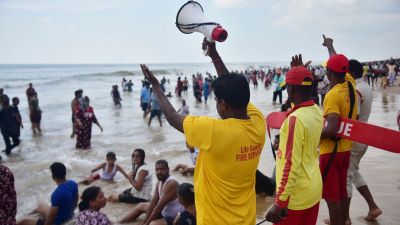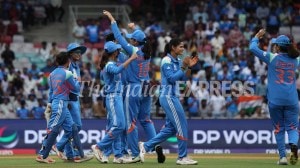‘Doston ka woh azeez tha. Salim toh bas Salim tha’; Last wish: to take mother for Haj
Seven blasts on seven trains on 7/11. That’s how they all died. 185 citizens of India. The Indian Express chronicles how they lived

Just past midnight, hours after Terrible Tuesday, Salim Mohammad Kundiwala, ‘‘every inch of his body stitched up’’, asked for a piece of paper. He wrote: ‘‘Mere liye dua karna (pray for me).’’ Four days later, he was dead.
That full stop also ended 42-year-old Salimbhai’s great Mumbai dream: making enough money to take his mother to Haj, starting a new life three years after separating from his wife, watching his sons do well in their studies.
It was a full stop that was felt at his seventh-floor Mira Road flat in the most bizarre manner possible—the night after he died, Salimbhai’s goldfish died too.
Says Salim’s close friend Mohammed Irfan Sheikh: ‘‘When I hear about the police combing Muslim neighbourhoods, I tell myself that the people who did this cannot be Muslims. Because a Muslim is someone like Salim who respected his mother, had dreams for his sons, wished well for his friends, and the religion. Those who did this cannot be humans, forget being Muslim.’’
Looking back, Sheikh says he should have done more for his friend. After he heard that Salim was injured and had been admitted to the KEM Hospital, he got busy with the funerals of two others from the ‘‘Mira Road circle’’ who had died in the Matunga blast.
‘‘All communications had failed, but the information that Salim was injured meant he was alive,’’ says the 37-year-old, a friend for eight years and the owner of a shoe business like Salim. Hours later, Sheikh came to know that Salim’s condition had dipped, had become critical.
Today, at Salim’s Asmita Vintage Complex flat, 65-year-old mother Kitabunisa tries to numb her mind by peeling vegetables, getting busy with cooking, something she had given up long ago due to ill-health. ‘‘Salim used to cook food for me after he returned from work,’’ says Kitabunisa, who moved in from central Mumbai after Salim separated from his wife.
Nearby is Salim’s 15-year-old son Parvez and his 12-year-old brother Sohail, now with their grandmother, sent by their mother who has remarried. ‘‘He used to meet me at the Mira Road mosque often,’’ says Parvez. Even if their conversations were mostly restricted to this: ‘How are you doing’; ‘Do well in studies, it’s the only thing that will separate you from the rest’.
Three months ago, Salim asked Parvez to go for an MBA. ‘‘It’s what I want to tell everyone with head held high, that my son has done MBA,’’ he told him. ‘‘I will do an MBA in finance,’’ says Parvez, now a Class X student. ‘‘My abbu was into business. He would surely have approved.’’
Sheikh says Salim, who graduated from Maharashtra College, knew the heartbeat of Mumbai. ‘‘He knew the city like the back of his hand, the various street food marts, restaurants. He was famous among our friends for introducing us to great food. Doston ka woh azeez tha. Salim toh bas Salim tha,’’ he says.
In fact, the two love birds Salim had bought months ago are still chirping—and life, says Sheikh, was beginning to look up for his friend. ‘‘We were thinking of putting his matrimonial ad out in the coming months.’’






- 01
- 02
- 03
- 04
- 05

























